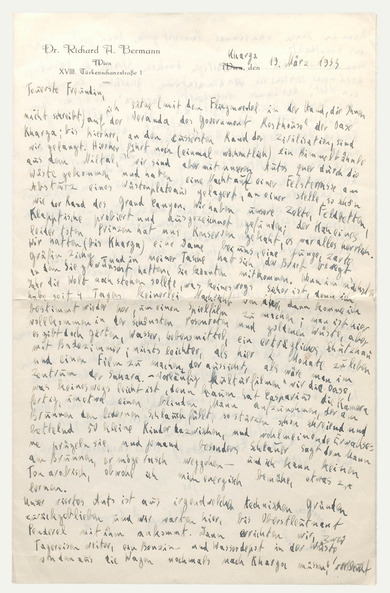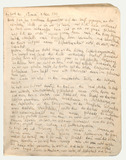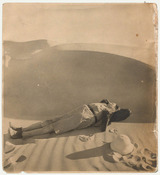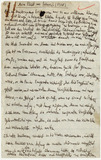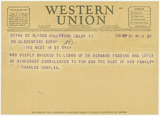Richard A. Bermann: Letter to Elisabeth Bergner (19 March 1933)
Richard A. Bermann: Letter to Elisabeth Bergner (19 March 1933)
Wenn im nächsten Jahr die Welt noch stehen sollte, was keineswegs sicher ist, […] dann komme ich bestimmt wieder her, um einen Spielfilm zu machen […].
[If the world should still be here next year, something that is anything but certain. […] then I will surely come back here to make a feature film. (ed. trans.)]
Richard A. Bermann to Elisabeth Bergner on 19 March 1933
Author Richard A. Bermann – a great fan of the cinema – and the actress Elisabeth Bergner were presumably friends until the end of the 1920s. In 1930, in preparation for scenes in her first talking film Ariane (1931), Bergner called Bermann during the night and had him dictate over the phone the complete speech by her character Ariane about Napoleon’s banishment to the island of St. Helena. He later dedicated his novel about Napoleon Das Mädchen von St. Helena to the actress. The book was released in 1933 in Germany, but was unable to gain a readership there because, like all of the author’s books, it was banned.
When Bermann boarded a ship in Venice on 4 March 1933 to take part on an expedition to the Libyan desert, he knew that he would be returning to a changed world and reproached himself in his diary for fleeing from the political situation in Europe. On 6 March 1993, his diary entry said that the uncertainty he was travelling to was much clearer to him than the formless nature of what he was leaving behind. He said that he would be venturing into the desert and, of his own will, not have to face the horrific events going on. (Saharafahrt (1933), 2003, p. 196)
The expedition started one day after Bermann had written the letter to Elisabeth Bergner. The author hoped that he would find a letter from his friend awaiting him in his hotel following his return to Cairo. What he was unaware of at this point in time was that he would also find a dismissal notice there from the newspaper Berliner Tageblatt, which fired him in April 1933 – for political reasons and because he was a Jew.

